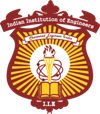About
Electrical engineering is one of the newer branches of engineering, and dates back to the late 19th century. It is the branch of engineering that deals with the technology of electricity. Electrical engineers work on a wide range of components, devices and systems, from tiny microchips to huge power station generators.
Early experiments with electricity included primitive batteries and static charges. However, the actual design, construction and manufacturing of useful devices and systems began with the implementation of Michael Faraday’s Law of Induction, which essentially states that the voltage in a circuit is proportional to the rate of change in the magnetic field through the circuit. This law applies to the basic principles of the electric generator, the electric motor and the transformer. The advent of the modern age is marked by the introduction of electricity to homes, businesses and industry, all of which were made possible by electrical engineers
Career
Individuals who wish to become an electrical engineer should start their preparations as early as high school. They should have exceptional communication and math skills and be willing to work both indoors and outdoors.
Electrical engineers typically work together with other engineers and other professionals. With this, they should work comfortably and efficiently with a team. Experts highly recommend that graduates get into internship programs. Doing so will allow them to see the real employment world for electronic engineers.
It is important that electronic engineers enjoy what they are doing. This career field can be physically and intellectually challenging. This is why aspiring engineers should be sure about their decision.
Job Prospects
Electrical engineers design, develop, test and supervise the manufacturing of electrical equipment, such as electric motors, radar and navigation systems, communications systems and power generation equipment, states the U.S. Bureau of Labor Statistics. “Electronics engineers design and develop electronic equipment, such as broadcast and communications systems — from portable music players to global positioning systems (GPS).”
If it’s a practical, real-world device that produces, conducts or uses electricity, in all likelihood, it was designed by an electrical engineer. Additionally, engineers may conduct or write the specifications for destructive or nondestructive testing of the performance, reliability and long-term durability of devices and components.
Today’s electrical engineers design electrical devices and systems using basic components such as conductors, coils, magnets, batteries, switches, resistors, capacitors, inductors, diodes and transistors. Nearly all electrical and electronic devices, from the generators at an electric power plant to the microprocessors in your phone, use these few basic components.
Critical skills needed in electrical engineering include an in-depth understanding of electrical and electronic theory, mathematics and materials. This knowledge allows engineers to design circuits to perform specific functions and meet requirements for safety, reliability and energy efficiency, and to predict how they will behave, before a hardware design is implemented. Sometimes, though, circuits are constructed on “breadboards,” or prototype circuit boards made on computer numeric controlled (CNC) machines for testing before they are put into production.
Remuneration
Electrical and electronics engineers work primarily in research and development industries, engineering services firms, manufacturing and the federal government, according to the BLS. They generally work indoors, in offices, but they may have to visit sites to observe a problem or a piece of complex equipment, the BLS says.
Manufacturing industries that employ electrical engineers include automotive, marine, railroad, aerospace, defense, consumer electronics, commercial construction, lighting, computers and components, telecommunications and traffic control. Government institutions that employ electrical engineers include transportation departments, national laboratories and the military.
Most electrical engineering jobs require at least a bachelor’s degree in engineering. Many employers, particularly those that offer engineering consulting services, also require state certification as a Professional Engineer. Additionally, many employers require certification from the Institute of Electrical and Electronics Engineers (IEEE) or the Institution of Engineering and Technology (IET). A master’s degree is often required for promotion to management, and ongoing education and training are needed to keep up with advances in technology, testing equipment, computer hardware and software, and government regulations.
Course Structure
Section-A
| Subject Code | Subject Name | Download |
|---|---|---|
| AMP-01 | MATHEMATICS III | Download |
| AMP-02 | THERMODYNAMICS | Download |
| AMP-03 | SIGNALS AND NETWORKS | Download |
| AMP-04 | DIGITAL ELECTRONICS | Download |
| AMP-05 | ELECTRICAL MACHINES | Download |
| AMP-06 | SOCIETY, ENVIRONMENT AND ENGINEERING | Download |
| AMP-07 | ELECTRONIC DEVICES AND CIRCUIT | Download |
| AMP-08 | ANALOG ELECTRONICS CIRCUITS | Download |
| AMP-09 | ELECTROMAGNETIC THEORY AND APPLICATION | Download |
Section-B
| Subject Code | Subject Name | Download |
|---|---|---|
| AMP-10 | ELECTRICAL MEASUREMENT – I | Download |
| AMP-11 | COMPUTER ORGANISATION | Download |
| AMP-12 | CONTROL SYSTEM | Download |
| AMP-13 | POWER SYSTEMS | Download |
| AMP-14 | ELECTRICAL MEASUREMENT – II | Download |
| AMP-15 | ADVANCED ELECTRICAL MACHINES | Download |
| AMP-16 | POWER ELECTRONICS AND DEVICES | Download |
| AMP-17 | DIGITAL SIGNAL PROCESSING | Download |
| AMP-18 | MICRO – PROCESSOR | Download |
| AMP-19 | ADVANCE POWER SYSTEM AND DESIGN | Download |
| AMP-20 | INDUSTRIAL ECONOMICS AND MANAGEMENT | Download |
| AMP-21 | EXTRA HIGH VOLTAGE (EHV) TRANSMISSION | Download |
| AMP-22 | POWER SYSTEM RELIABILITY | Download |
| AMP-23 | ILLUMINATION ENGINEERING | Download |
| AMP-24 | HIGH VOLTAGE ENGINEERING | Download |
| AMP-25 | MACHINE DRIVES | Download |
| AMP-26 | DESIGN AND ESTIMATION OF ELECTRICAL SYSTEMS | Download |
| AMP-27 | ELECTRICAL MACHINE DESIGN | Download |
| PROJECT | PROJECT WORK | Download |
Project Work


